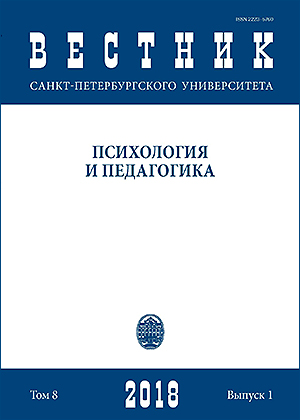Современные исследования идентичности: от структурной определенности к процессуальности и незавершенности
DOI:
https://doi.org/10.21638/11701/spbu16.2018.101Аннотация
Развитие проблематики идентичности рассматривается преимущественно в социально-психологическом ракурсе. Отмечается, что хотя нарастающая междисциплинарность использования понятия идентичности может быть проанализирована с точки зрения как новых ограничений, так и новых возможностей, в любом случае актуальные исследования идентичности неразрывно связаны с учетом тех особенностей современной социальной реальности, которые в максимальной степени релевантны постоянному поиску человеком своей экзистенции, реализации непрекращающегося выбора своего «Я». Внимание к ситуационно неопределенному и изменчивому социальному контексту обусловливает повсеместное признание исследователями кризиса идентификационных структур личности и соответствующий акцент на «текучей»
идентичности человека «текучей» современности, лишенной структурной определенности и завершенности. Эта исследовательская тенденция рассматривается на примере современной модификации трех традиционных дихотомий в анализе идентичности: «дифференциации — интеграции», «изменчивости — постоянства» и «Я — социального контекста». Показано, что в каждой из этих дихотомий по мере развития проблематики идентичности можно наблюдать постепенное исчезновение содержательных оппозиций: на смену структурной и содержательной определенности как в понимании идентичности, так и в определении закономерностей ее развития все более приходят взгляды, отражающие процессуальность и вероятностность любых ее проявлений. Подчеркивается, что подобный сдвиг в концептуализации обусловлен динамикой современного социального пространства: исследования идентичности последних десятилетий во многом становились попыткой понимания того, как человек противостоит нарастающей неопределенности, множественности и изменчивости социального мира.
Ключевые слова:
идентичность, кризис идентичности, множественность идентификационных структур личности, потенциальность идентичностей
Скачивания
Библиографические ссылки
References
Загрузки
Опубликован
Как цитировать
Выпуск
Раздел
Лицензия
Статьи журнала «Вестник Санкт-Петербургского университета. Психология» находятся в открытом доступе и распространяются в соответствии с условиями Лицензионного Договора с Санкт-Петербургским государственным университетом, который бесплатно предоставляет авторам неограниченное распространение и самостоятельное архивирование.




